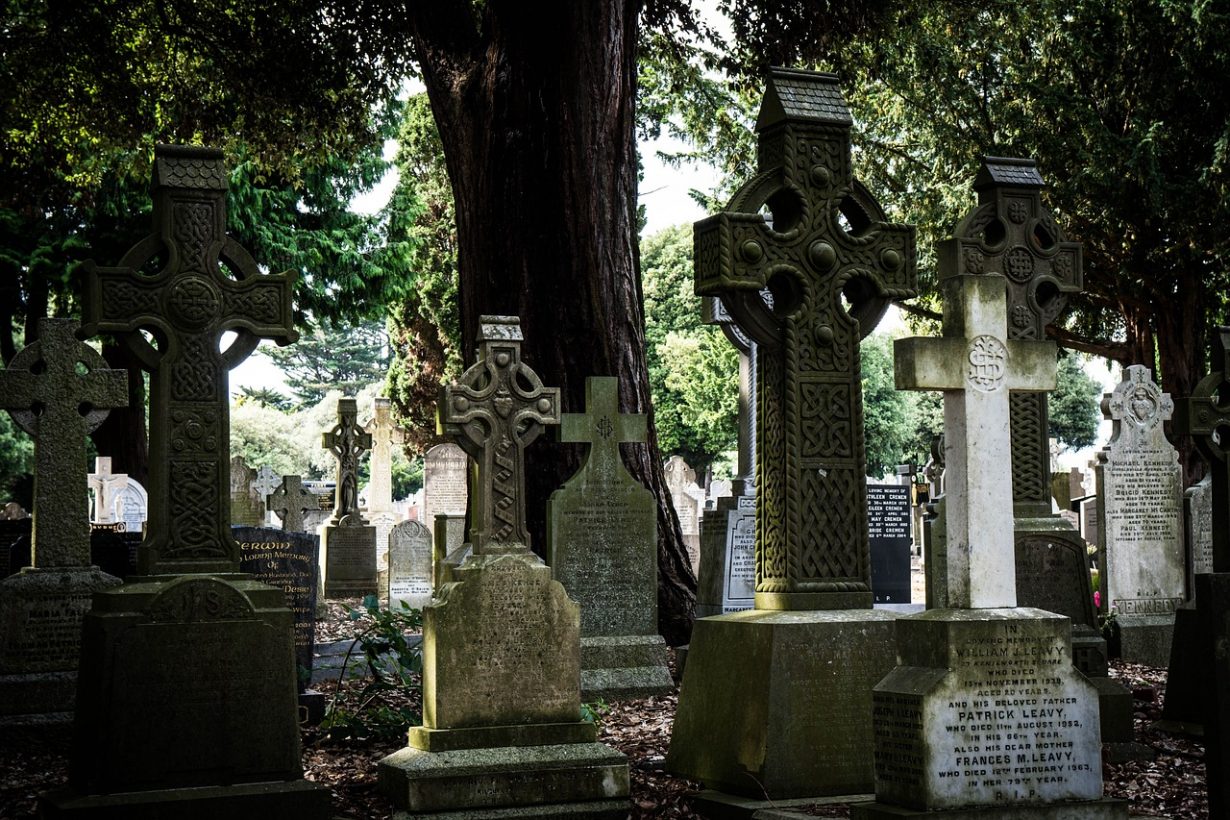I received four more questions, so I will answer two questions this month, and the last two questions in the November newsletter.
- What is the best way to move forward from the loss (death) of a loved one? Once you have grieved, once you have prayed and accept by faith that God is taking care of everything, both the living and the dead, what helps and how best do you explain it to loved ones? (especially on significant dates).
The apostle Paul says this in 1 Thessalonians 4:13,14:
“13 But we do not want you to be uninformed, brothers, about those who are asleep, that you may not grieve as others do who have no hope. 14 For since we believe that Jesus died and rose again, even so, through Jesus, God will bring with him those who have fallen asleep.”
Paul tells us how not to grieve: as those who have no hope. Instead, when a loved one has passed away who was a Christian, we can hope, a firm and certain hope that because Christ died for our sins and rose again from the dead on the third day, all those who trust in Christ will be united with Him and His people for all eternity. This is the hope that comes the certainty of eternal life in Christ. We look for the resurrection of the dead and the life of the world to come! This does not mean though that Christians are not allowed to grieve the loss of a loved one.
Grieving is part of being human. Since the death of someone we loved hurts us at such a deep level, it is right and appropriate to go through a grieving process. Everyone who has lost a loved one has a different path of grieving, so I am hesitant to put time limits on the grieving process. I find the well-documented five stages of grief helpful: denial, anger, bargaining, depression and acceptance. We must keep in mind that these stages shouldn’t be understood as always happening in order, moving from one stage to the other. A person can move in and out of these stages in different orders. They should not be seen as consecutive. From the widows and widowers that I have spoken to, the first year after your loved one passes is the hardest. This only means that after the first year, grief gradually takes on a different form and shape. As in all circumstances of life, we have to remind ourselves to take one day at a time, being patient with ourselves as we travel through our own grieving process and this vale of tears awaiting the renewal of all things by our Lord Jesus.
2. How did Mary and the other women intend to move the stone from the tomb to get to Jesus’ body?
I really don’t know what Mary and the other women were thinking as they approached the tomb of Jesus that Sunday morning. How were they planning to move the stone away from Jesus’ tomb? One thought that crossed my mind while reflecting on this passage was perhaps they were going to beg the soldiers to move the stone. With all that had happened surrounding His crucifixion, they would have expected the soldiers to still be there. Perhaps they thought there would be a gardener or caretaker or other mourners in the cemetery that would assist them in removing the stone.
This mental process of asking questions of the text of Scripture is a good sign in that we are paying attention to the narrative, and even if the passage doesn’t answer the question, it is good to reflect on God’s Word. We can all rejoice that the women didn’t have to deal with that issue and instead that the angel spoke to the women with this message,
“Why do you seek the living among the dead? 6 He is not here, but has risen. Remember how he told you, while he was still in Galilee, 7 that the Son of Man must be delivered into the hands of sinful men and be crucified and on the third day rise.” (Luke 24:5-7) Glory be to God Our Heavenly Father and to His Son and to the Holy Spirit! Let us look forward to the final Resurrection!


